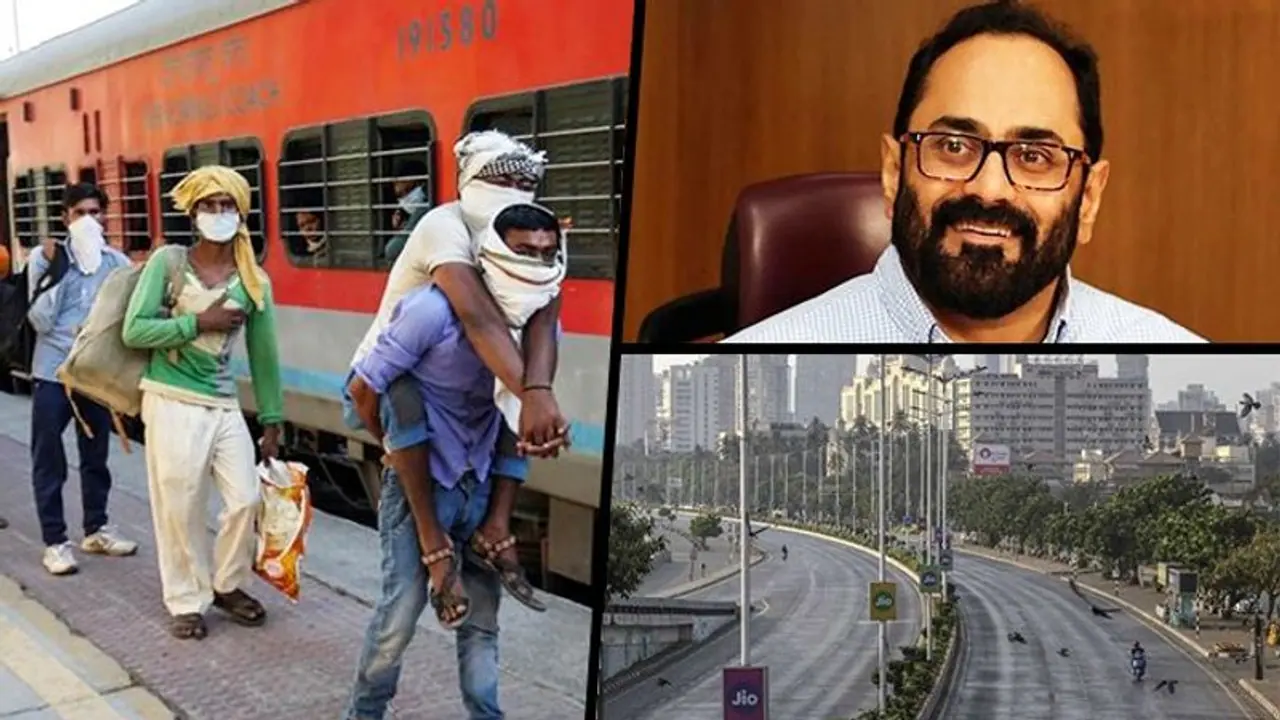There are real changes in governance and priorities that have been brought to all our attention. These issues long ignored are now pressing priorities for our lives post this shock.
The coronavirus pandemic is an unprecedented one. The world hasn’t experienced anything like this since the Spanish Flu of 1918.

Originating in China (in its wetmarkets or in a lab we don’t know yet), it has swept through the world and is creating havoc, death and economic destruction in its wake – leaving no country untouched including the most modern and advanced nations.
Also read: India’s total count of cases rose to 1,25,101, including 3,720 deaths, on Saturday
The virus has no vaccine currently and so its safe to assume that the world remains vulnerable for the coming term. The impact of the pandemic shock is already playing out, with business, job losses and livelihood declines witnessed all around us. Predictably, it is the weakest and most vulnerable who are bearing the brunt of this early phase of the virus as panic and income losses combine to drive millions of migrants home in trying and difficult conditions, faced by home states underequipped to handle the sudden influx.
Regardless of many futurologists, experts and economists and their forecasts, we can all conclude that the world is flying blind in this pandemic. As long as vaccine remains elusive, governments and citizens around the world are working a hard balance between protecting health/lives vs livelihoods. It’s a choice that has never had to be made by governments in the modern age.
Regardless, it is obvious our lives are never going to be the same. There are real changes in governance and priorities that have been brought to all our attention. These issues long ignored are now pressing priorities for our lives post this shock.
1. A national portable social security architecture for the poor and informal sector
The scenes of lakhs of vulnerable migrants, struggling to go back to their home states have woken all of us to structural vulnerability of the informal sector and their lack of access to basic social security for their lives, even 75 years after independence despite decades of ‘garibi hatao’ sloganeering. This must be changed. The informal sector and the poor must be formalised and covered by a comprehensive social security.
2. Personal safety and health security, long ignored or at the very least accorded low priorities by successive governments must become highest priority. India and Indians deserve high quality and universal healthcare. The PM’s AyushmanBharat program has been a good start. It needs to be expanded rapidly with focus also on creating more healthcare delivery capacity in districts away from metros in all states. India has only 0.7 beds/1000 and 0.8 doctors/1000 and we spend onklyabout 3% of GDP on healthcare and wellness. These are inadequate in a world with high risks of pandemics. The only way nation’s confidence can be resilient in times of pandemic and infections is if it is confident of its healthcare capacity and capabilities.
Also read: Airlines in India are getting ready to take off gradually
3. Sustainability as part of our economic development model will become critical to ensure that we do not see return of this kind or other kinds of health pandemics revisited on our people.
4. Self-reliant AatmaNirbhar local community /state and national model of development – where people can find employment, opportunities in their own states and communities. Where local communities which were long the bedrock of our societal model are rebuilt.
5. Technology and remote working – technology will now move into every aspect of our lives as more and more remote working and remote engagement take over. Remote working will be the norm for government, judiciaries and businesses use internet and technologies for work and engagement.
Regardless of this deep shock and disruptions in our lives and livelihoods, we must keep the faith. We must be confident that we will prevail and rebuild. But that the lives we go back to will be different, smarter, more compassionate, more caring, more aware and with the right priorities to our communities, states and nation.
